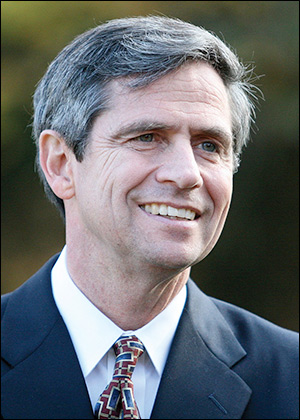Pennsylvania Senate
Last year, a record number of publicly released polls led us to tracking what proved to be an extraordinary set of US Senate races. For the 2016 election cycle, we can expect more of the same.
Public Policy Polling commences the off-year campaign with a survey from what promises to be one of the more competitive of the in-cycle US Senate states, Pennsylvania. Here, first-term Republican Sen. Pat Toomey begins a drive for re-election before a presidential year electorate that normally backs a Democratic candidate in the national vote. Sure to be a top presidential campaign target state, Pennsylvania voters can expect to witness an onslaught of political communication about both the presidential campaign and their important US Senate contest.
Though viewed as a swing entity, the Keystone State has voted Democratic in the presidential race consecutively since 1992, inclusive. But, during that same period, Pennsylvanians have elected and/or re-elected three Republican US senators and two GOP governors.
According to this new PPP survey (Jan. 15-18; 1,042 registered Pennsylvania voters) Sen. Toomey registers tepid numbers, relatively commonplace at this point in time for a senator who belongs to the state’s minority party. And, as typical for a Public Policy Polling survey, almost every political figure tests with a negative favorability image.
While President Obama’s job approval is a poor 42:51 percent in a state where he received 52 and 54 percent in 2012 and 2008, respectively, Sen. Toomey registers a 28:35 percent favorable to unfavorable ratio. Sen. Bob Casey, Jr. (D), who doesn’t again face the voters until 2018, does much better at 41:33 percent. The only other political figure to score a positive rating is former Gov. Ed Rendell (D), and he can only muster a 43:42 percent score.
Also typical of a PPP poll, is the testing of many well known politicians who will not be candidates in this particular Senate race. Among the six scenarios polled, only former Gov. Rendell, surely a non-candidate, out-polls Sen. Toomey. According to the results, Rendell would lead the incumbent, 44-41 percent. Against all others, the senator leads by margins of four to eight percentage points, but never breaks the 43 percent support level.
The one pairing that matters most, however, is with the only announced 2016 senatorial candidate, and the man who Toomey beat 51-49 percent in 2010, former US Rep. Joe Sestak (D-PA-7). Here, Toomey has a 40-36 percent advantage.
Sestak, a former Navy Admiral who was a member of President Clinton’s National Security Council, served two terms in the House from a Philadelphia suburban district after unseating 20-year veteran Rep. Curt Weldon (R) in 2006. Sestak was re-elected in 2008, and then ran for Senate two years later. Already announcing his statewide candidacy last year, Sestak has raised $1.6 million for the race through last September, with $1.28 million on hand. By contrast, Sen. Toomey had more than $5 million in the bank during the same time frame.
The Pennsylvania race promises to be one of the most polled during the 2016 election cycle. The fact that an incumbent senator registers numbers only in the low 40s under all scenarios is not necessarily a harbinger of a poor re-election performance, but it clearly indicates Sen. Toomey’s support must grow. In the last cycle, Sens. Mark Begich (D-AK), Mark Pryor (D-AR), Mark Udall (D-CO), Mary Landrieu (D-LA), and Kay Hagan (D-NC) each found themselves mired in the low 40s for more than a year, and all lost. It remains to be seen if a similar pattern ensnares Sen. Toomey, or whether he expands his appeal.

